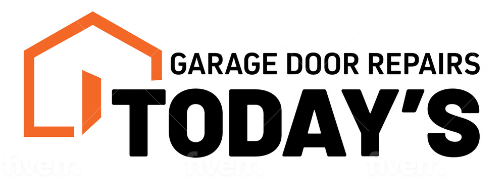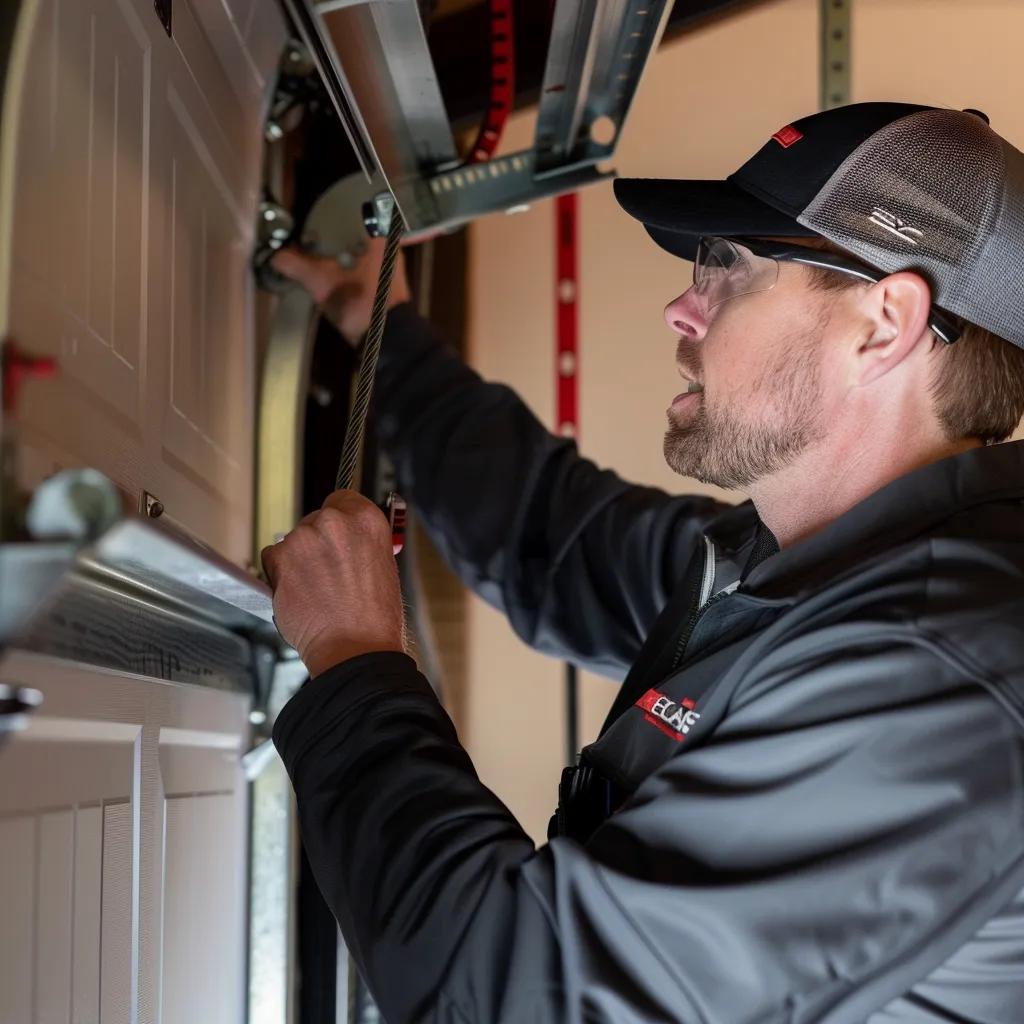Why Local Garage Door Inspections Matter for Home Safety
Local Garage DoorInspection Services: What Professional Maintenance Reveals About Safety and Performance
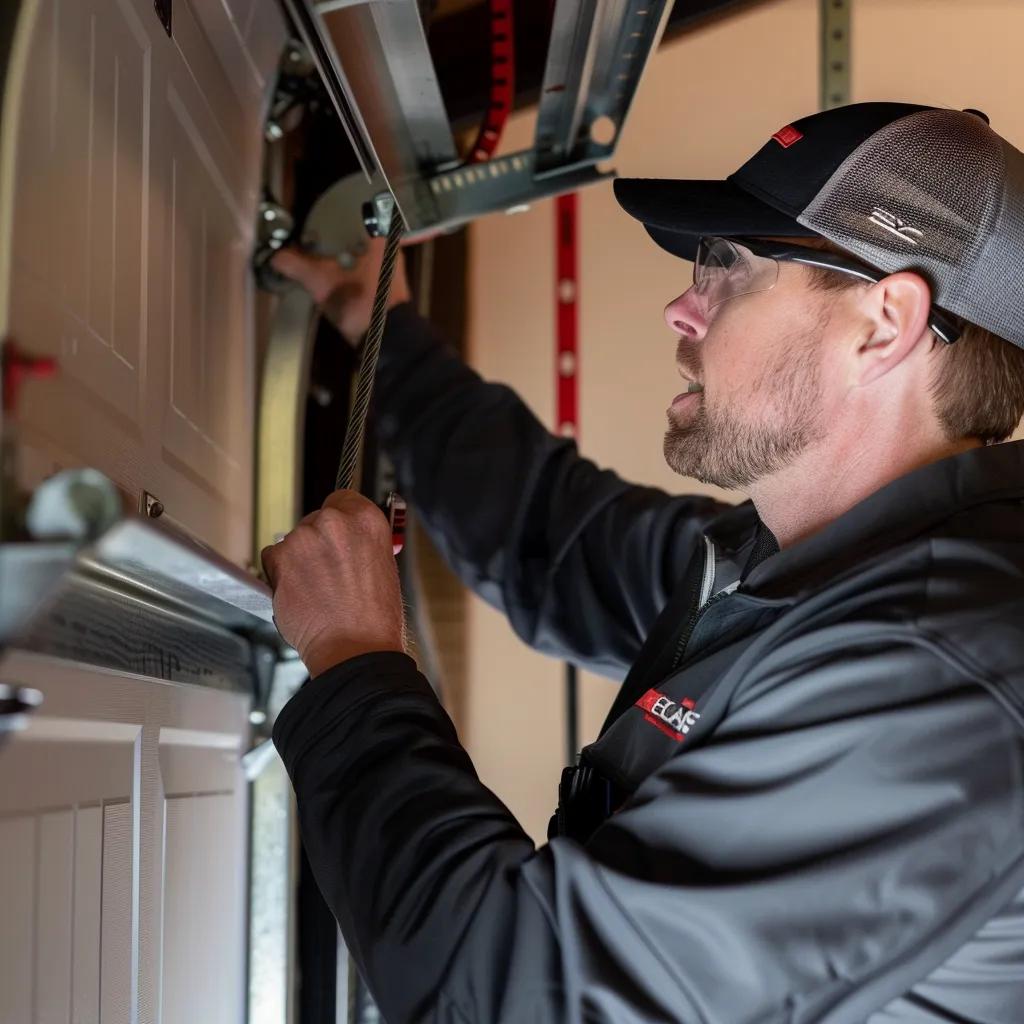
Did you know garage door failures cause thousands of injuries and costly property damage every year? It’s a startling thought, but the good news is that most of these emergencies are entirely preventable. That’s where professional local garage door inspection services come in. Our expert team at todaysgaragedoorrepairservice.com can uncover those hidden issues long before they turn into a major headache or a dangerous situation.
In this guide, we’ll walk you through exactly how our comprehensive maintenance evaluates every crucial component—from the mighty torsion springs and lift cables to the vital photo-eye sensors and weatherstripping. You’ll discover how a thorough inspection boosts your garage door‘s safety, performance, and overall lifespan. We’ll cover what our inspections include, the undeniable benefits of routine upkeep, ideal scheduling intervals, common problems our technicians expertly reveal, what a professional tune-up entails, and even how inspections can make your home more energy-efficient. By the time you finish reading, you’ll understand why scheduling a professional inspection with us is the smartest way to protect your home or business and gain ultimate peace of mind.
What Does a Local Garage DoorInspection Include?
A professional garage door inspection isn’t just a quick glance; it’s a comprehensive, meticulous evaluation designed to ensure your door operates safely and smoothly. We meticulously check everything from springs, cables, and rollers to tracks, safety sensors, and your opener’s functionality. Our inspections pinpoint wear patterns, rigorously test safety mechanisms, and precisely calibrate tension to prevent sudden, unexpected failures. For homeowners and business owners alike, this essential service from our certified technicians flags minor issues early, saving you from costly downtime and significantly extending your entire system’s life.
Which Garage Door Components Are Checked During an Inspection?
Before we even begin, our technicians prioritize your safety by verifying power disconnection and securely stabilizing your garage door. Then, we dive into a detailed component checklist:
- Torsion Springs and Extension Springs: We carefully measure tension, assess cycle count, and look for any signs of corrosion that could indicate imminent breakage.
- Lift Cables and Drums: Our experts inspect for fraying, ensure proper winding on the drums, and verify cable alignment for smooth, balanced operation.
- Rollers and Tracks: We thoroughly check the condition of your roller wheels, ensure track alignment is perfect, and apply specialized lubrication to all contact points.
- Photo-Eye Sensors and Safety Edges: We confirm precise beam alignment, test obstruction detection capabilities, and verify wiring integrity to prevent safety hazards.
- Garage Door Opener: We test force settings, travel limits, remote controls, wall console, and your backup battery to ensure reliable performance.
- Hinges, Brackets, and Hardware: We tighten any loose fasteners, replace worn pivot points, and apply rust-inhibiting lubrication to keep everything moving freely.
- Weatherstripping and Bottom Seals: We evaluate their sealing performance against drafts, moisture, and pests, ensuring your garage is protected from the elements.
Every single item on this list directly influences your garage door‘s safety and smooth operation, preparing it for reliable daily use. This leads us naturally to how we rigorously test those crucial safety features.
How Are Safety Features Like Photo-Eye Sensors and Auto-Reverse Mechanisms Tested?
Our professional inspection protocols are designed to ensure your safety systems function flawlessly under real-world conditions, giving you complete peace of mind:
- Photo-Eye Alignment Test: Our technicians place a physical obstruction (like a piece of cardboard) directly in the sensor’s path and attempt to close the door. The door should immediately reverse, confirming the sensors are working correctly.
- Auto-Reverse Force Test: With a block placed safely under the door, we measure the opener’s downward force to verify it reverses within strict regulation thresholds, preventing entrapment.
- Manual Release Check: We pull the quick-release cord to disengage the opener, confirming that your door can be operated smoothly and safely by hand in case of a power outage.
- Sensor Wiring and Lens Cleaning: We meticulously inspect all electrical connections and clean the sensor lenses to prevent false positives or complete sensor failure.
- Dual-Sensor Synchronization: We test both the left and right sensors for simultaneous detection, ensuring a consistent and reliable response to any obstruction.
Proper sensor and auto-reverse testing is non-negotiable. It eliminates dangerous pinch hazards and ensures full compliance with all safety standards, guiding us to recognize wear on mechanical parts next.
Garage Door Safety Standards
At Today’s Garage Door Repair Service, we believe garage door safety is paramount. We adhere strictly to industry standards designed to prevent injuries and ensure your peace of mind. These standards cover every aspect, including the rigorous testing of photo-eye sensors and auto-reverse mechanisms, guaranteeing they function correctly and eliminate entrapment hazards.
This standard provides the essential framework for the safe design, construction, and operation of garage doors, directly supporting our unwavering emphasis on thorough safety inspections.
What Are the Signs of Wear on Springs, Cables, Rollers, and Tracks?
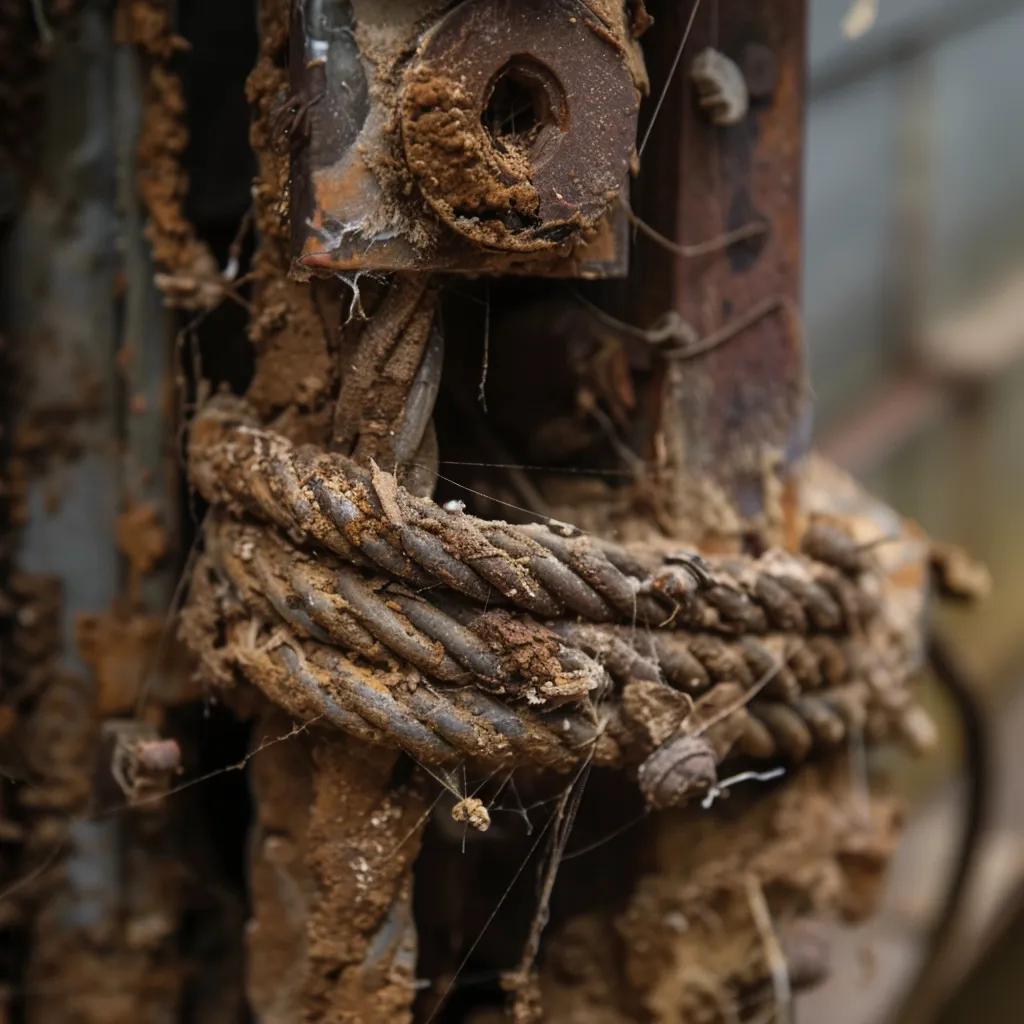
Identifying wear early is crucial. It prevents catastrophic failures, unexpected breakdowns, and costly unplanned replacements. Our technicians are trained to spot these warning signs:
- Torsion Springs: Visible gaps in the coils, rust pitting, or a noticeable loss of tension are clear indicators of imminent breakage.
- Extension Springs: Uneven coil spacing or signs of metal fatigue suggest a reduced lifting capacity, making your door harder to operate.
- Lift Cables: Frayed wires, kinks, or uneven winding on the drums denote weakened support, which can lead to dangerous imbalances.
- Rollers: Cracked nylon or corroded steel wheels cause excessive vibration, loud noises, and can even lead to significant track damage.
- Tracks: Dents, warping, or misalignment create binding and impede smooth travel, putting unnecessary strain on your entire system.
Recognizing these warning signs reduces significant safety risks and sets the stage for understanding the broader, long-term benefits of regular maintenance.
Why Is Regular Garage Door Maintenance Important for Homeowners and Businesses?
Think of regular garage door maintenance as an investment in your property’s future. It’s not just about fixing things when they break; it’s about preserving structural integrity, optimizing performance, and significantly enhancing security. By systematically addressing wear and rigorously verifying safety features, you, as a property owner, can completely avoid emergency repairs, reduce potential liability, and dramatically extend the life of your equipment. Plus, preventative care often aligns perfectly with warranty requirements and local inspection regulations, keeping you compliant and protected.
Benefits of Regular Garage Door Maintenance
At Today’s Garage Door Repair Service, we know that regular maintenance isn’t just a suggestion—it’s a necessity. It truly extends the lifespan of your garage doors and optimizes their performance. Routine upkeep, including expert lubrication, precise adjustment, and thorough safety checks, is the key to preventing costly repairs down the line and ensuring your door operates efficiently and safely for years to come.
This trusted guide reinforces our claims about the immense value of preventative maintenance, highlighting its benefits in terms of significant cost savings and extended equipment life.
How Does Maintenance Enhance Garage Door Safety and Security?
Your garage door is a primary entry point to your home or business. Our maintenance services ensure it’s a secure one:
- Reduced risk of sudden failures: We prevent unexpected spring or cable failures, which can cause serious injuries and costly property damage.
- Consistent safety compliance: Our rigorous sensor and auto-reverse testing ensures your door always complies with safety codes, preventing dangerous entrapment.
- Enhanced physical security: Tightening hinges and brackets eliminates loose points that could potentially allow forced entry, keeping your property safer.
- Minimized noise for increased awareness: Lubricated moving parts minimize operational noise, which could otherwise mask unauthorized activity around your garage.
Together, these measures establish a robust, secure barrier, minimizing safety hazards and unauthorized access, giving you true peace of mind.
In What Ways Does Maintenance Extend Garage Door Lifespan and Performance?
Our detailed upkeep prevents small issues from escalating into major problems, ensuring your garage door performs flawlessly for years:
This proactive approach naturally leads to how it also reduces your costs over time.
How Can Preventative Care Save Costs on Repairs and Replacements?
Proactive inspections are your secret weapon against unexpected, high-cost breakdowns. By catching problems early, we transform unpredictable expenses into manageable, routine service:
Preventative care transforms those unpredictable, high-cost breakdowns into manageable, routine service, setting clear expectations for how often inspections should occur.
How Often Should Local Garage Door Inspections Be Scheduled?
The ideal inspection frequency for your garage door depends on a few key factors: the type of door, how often it’s used, and even local environmental conditions. Adhering to our recommended intervals is the best way to maximize safety and ensure your system’s long-term reliability.
These guidelines are designed to help both residential and commercial owners, but remember that specific local factors, such as coastal humidity or industrial dust, can warrant even more frequent checks.
What Is the Recommended Inspection Frequency for Residential Garage Doors?
For most homeowners, we recommend scheduling a full garage door inspection at least once per year. It’s also a smart idea to have a follow-up service before extreme seasons hit, like winter or summer, to prepare your door for temperature fluctuations. If you have a high-cycle residential door—perhaps for a rental property, a shared garage, or if your family uses the garage multiple times a day—you’ll benefit significantly from twice-annual visits. This helps maintain perfect balance and prevents component fatigue from heavy use.
How Do Commercial Garage DoorInspection Needs Differ?
Commercial garage doors are built to endure much heavier loads and are often subject to stricter regulatory scrutiny. OSHA and local authorities frequently require quarterly inspections and documented safety tests to ensure compliance. For high-traffic warehouses or busy loading bays, monthly assessments might even be necessary to prevent costly downtime and comply with specific insurance mandates. We understand these unique needs and tailor our services accordingly.
What Local Factors Affect Inspection Frequency and Maintenance Needs?
Your local environment plays a significant role in how often your garage door needs attention:
- Coastal humidity: This accelerates spring and track corrosion, demanding more frequent lubrication to prevent rust and wear.
- Cold-climate freeze-thaw cycles: These can warp seals and stiffen rollers, necessitating seasonal tune-ups to maintain smooth operation.
- Industrial areas with dust or chemical particulates: These environments require more frequent filter maintenance and component cleaning to avoid abrasive damage and ensure longevity.
Adapting your inspection schedule to these specific factors ensures optimal performance and extends the life of your garage door, no matter where you’re located.
What Common Problems Do Local Garage Door Inspections Reveal?
It’s amazing what a professional eye can spot! Our inspections frequently uncover hidden issues that, if left unaddressed, could quickly escalate into major operational failures or dangerous safety hazards. Understanding these common problems helps you prioritize professional services and avoid bigger headaches down the road.
How Are Frayed Cables and Broken Springs Identified and Addressed?
During our thorough inspection, technicians are specifically trained to look for tell-tale signs like cable strands protruding from the drum, uneven cable tension, or spring gaps of more than ¼ inch—a clear indicator of a broken spring. Upon detection, our certified specialists immediately replace worn cables or springs using only industry-grade parts. This restores perfect balance to your door and, most importantly, prevents a sudden, dangerous door collapse.
What Causes Noisy or Misaligned Rollers and Tracks?
Excessive noise from your garage door typically points to hardened grease, damaged roller wheels, or bent tracks. Our skilled technicians will meticulously clean any debris, realign rails with precision tools, and, when appropriate, upgrade your rollers to quieter, more durable nylon options. This process significantly reduces friction, eliminates annoying noises, and prolongs the life of your entire hardware system.
How Do Faulty Safety Sensors Impact Garage Door Operation?
Faulty safety sensors are a major concern. Misaligned or dirty photo-eyes can trigger frequent, frustrating auto-reversals, or worse, completely fail to stop the door when an obstruction is present. Our professionals address this by precisely realigning sensors, thoroughly cleaning lenses, and testing wiring integrity. This eliminates those nuisance reversals and, most importantly, restores reliable, life-saving safety performance to your garage door.
What Does a Professional Garage Door Tune-Up Service Include?
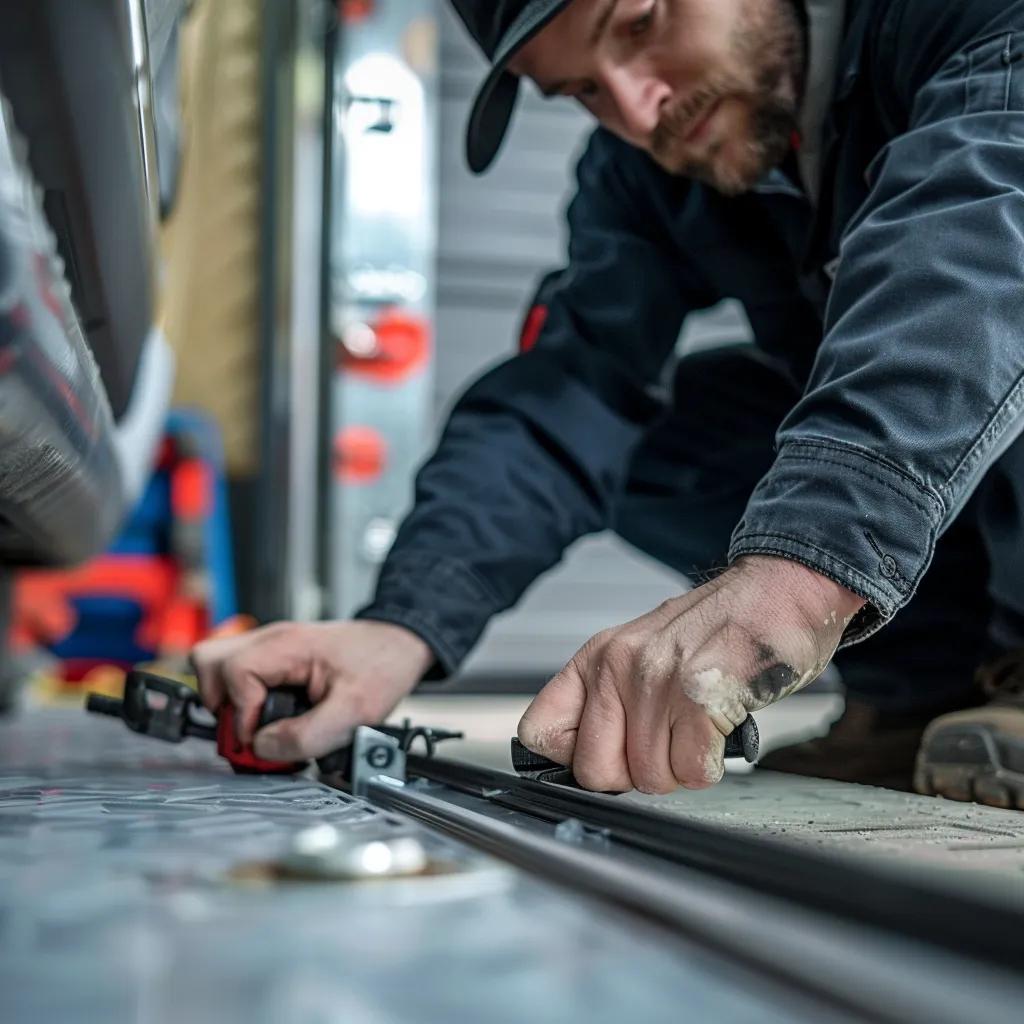
A professional garage door tune-up service is more than just a quick fix; it’s a comprehensive preventative measure. It combines expert lubrication, precise calibration, and rigorous safety testing to keep your entire system operating at peak efficiency. Our certified technicians apply specialized lubricants, carefully adjust force settings, and verify perfectly balanced operation to prevent malfunctions and ensure your door runs smoothly and quietly.
Which Maintenance Tasks Are Performed During a Tune-Up?
Our tune-up service is designed to cover all the critical areas, ensuring your garage door is in top shape:
- Lubricate Springs, Rollers, and Tracks: We use specialized lubricants to significantly reduce metal-on-metal friction, extending component life and reducing noise.
- Tighten Hardware: We meticulously secure all hinges, brackets, and fasteners, preventing loose connections that can lead to wear and instability.
- Balance Testing: We detach the opener and manually lift the door halfway to confirm it holds its position, ensuring perfect equilibrium and reducing strain on the opener.
- Force and Limit Calibration: We precisely adjust your opener settings for smooth, consistent travel and ensure the auto-reverse mechanism functions safely and reliably.
- Visual Inspection: Our technicians perform a thorough visual examination of your door panels, seals, and operator components for any signs of wear, damage, or potential issues.
These tasks collectively enhance your garage door‘s reliability and prepare it for more complex repairs only when absolutely needed.
How Does Professional Service Compare to DIY Maintenance?
While DIY might seem appealing, professional service offers distinct advantages that ensure safety, longevity, and peace of mind:
What Are Typical Costs and Benefits of Local Tune-Up Services?
Investing in a professional tune-up is an investment in your home’s safety and your peace of mind. Here’s a general idea of costs and the key benefits you’ll receive:
How Do Local Garage DoorInspection Services Support Energy Efficiency and Weather Protection?
Our inspections go beyond just safety and performance; they also play a crucial role in maintaining your home’s climate control and helping you reduce those pesky utility bills. By expertly sealing gaps and preserving insulation, we prevent air leakage and moisture ingress, making your home more comfortable and energy-efficient.
What Role Does Weatherstripping Play in Garage Door Maintenance?
Weatherstripping is your garage door‘s first line of defense against the elements. It seals the entire perimeter of the door, effectively blocking drafts, moisture, and even pests from entering your garage. During our inspection, if we find brittle or torn seals, we’ll replace them. This simple yet crucial step significantly improves thermal retention, reduces energy transfer between your garage and living space, and keeps your utility bills lower.
How Are Door Panels Inspected for Damage and Insulation Issues?
Our panel inspection involves a thorough check for any dents, rust, or warping that could compromise your door’s structural integrity and thermal resistance. Where applicable, our technicians will measure the R-value performance of your panels. If we find issues, we’ll recommend panel replacements or insulation upgrades to enhance your garage’s climate protection, keeping it warmer in winter and cooler in summer.
How Can Homeowners and Commercial Property Owners Schedule Local Garage Door Inspections?
Scheduling your local garage doorinspection with Today’s Garage Door Repair Service is designed to be simple and convenient, with options tailored to fit your busy lifestyle and urgent needs. We’re here to make it hassle-free!
What Are the Convenient Contact Options for Free Estimates and Immediate Service?
Ready to experience the peace of mind that comes with a professionally inspected garage door? Getting started is easy:
- Call us directly at (239) 710-4547for same-day scheduling and immediate assistance.
- Request online via our user-friendly form at todaysgaragedoorrepairservice.com/contact – we’ll get back to you promptly!
- Email service@todaysgaragedoorrepairservice.com for detailed quotes, availability, and any questions you might have.
How Do Local Regulations and Safety Standards Influence Inspection Services?
Rest assured, our inspection services strictly adhere to national safety codes (like ANSI/DASMA) and all local building regulations. This ensures your garage door system complies with essential fire-safety egress requirements and any insurance mandates. Our expert technicians meticulously document all test results and can provide certification reports where required, streamlining any permit processes and bolstering your liability coverage. We make sure you’re not just safe, but also fully compliant.
Routine inspections with Today’s Garage Door Repair Service not only protect your property and its occupants but also fulfill crucial legal obligations, making professional maintenance an essential part of responsible ownership. Don’t wait for a problem to arise!
Regular local garage door inspections reveal critical wear, safety defects, and energy-efficiency opportunities that DIY checks often miss. By partnering with our trained and trusted technicians, homeowners and businesses benefit from transparent pricing, documented compliance, and significantly extended system longevity. Scheduling annual or more frequent inspections based on your usage and local climate keeps your doors operating quietly, safely, and cost-effectively. Reach out to us today for a free estimate and experience the confidence and peace of mind that comes with professionally maintained garage doors!

